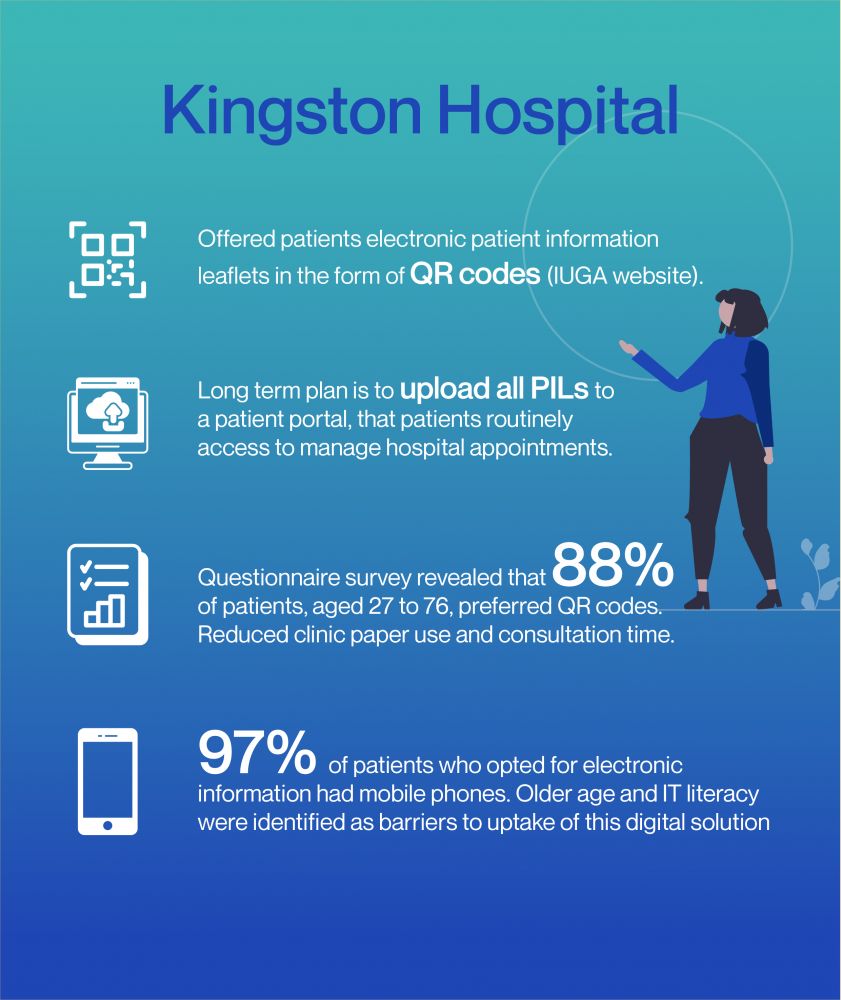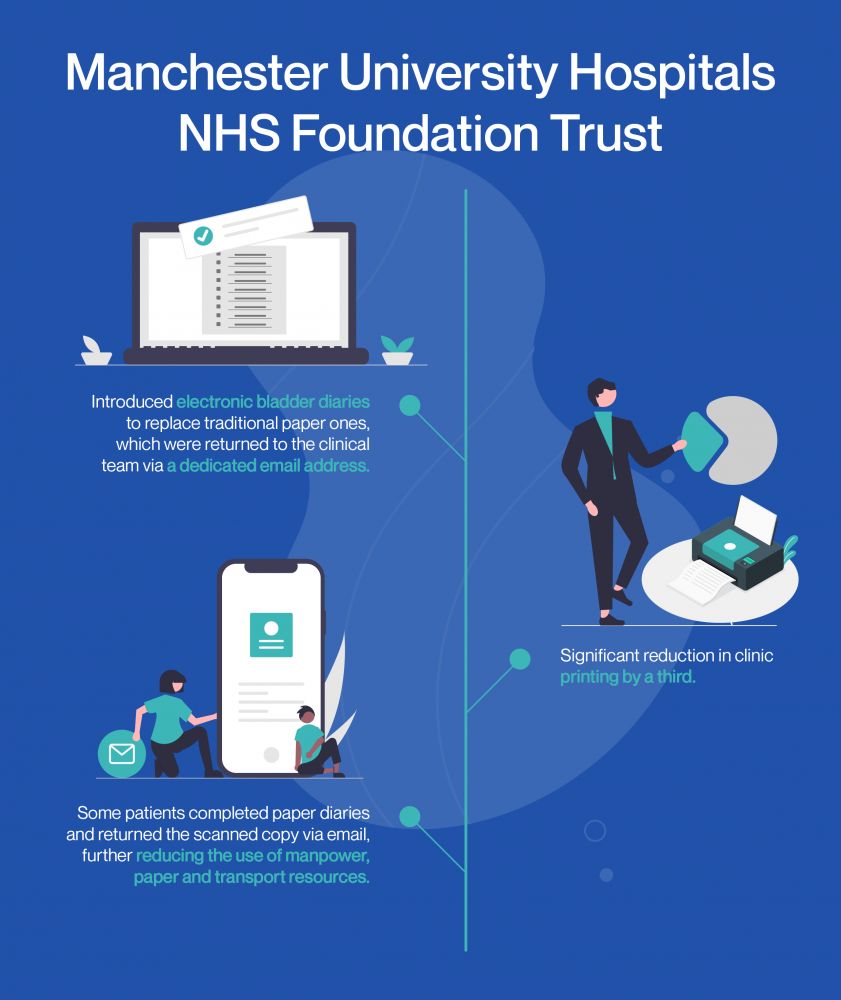
- About
- Patient Information
- Health Care Professionals
- Donate
BSUG Sustainability Special Interest Group
National Sustainability Survey
Open 20-21 November 2025, to collect information on sustainability-focused initiatives in gynaecology and urogynaecology. The survey will run alongside the BSUG Annual Scientific Meeting.
Your contribution will support efforts to build a greener NHS and a healthier planet.
November 2025. ![]()
Introduction
Climate change threatens to disrupt health systems ability to deliver high-quality care and undermines the past 50 years of gains in public health. Globally, the healthcare sector accounts for approximately 5% of greenhouse gas emissions1 and National Health Service (NHS), accounts for 25% of all public sector greenhouse gases, with two-thirds attributable to the use of medicines, medical equipment and supply chains2. On 1 July 2022, the NHS became the first health system to embed net zero into legislation, through the Health and Care Act 2022 and aim is to achieve net zero by 2045.
About us
Obviously, we all want to save the planet, but efforts need to be focussed and not duplicated. Organisations like the Royal College of Obstetricians and Gynaecologists (which has recently signed the UK health alliance on climate change), Royal College of Surgeons, the Women’s Health sustainability group and the World Health Organisation are all advocating for the same cause. We must build on their work and avoid redundancy.
Our focus is on introducing sustainable changes in our day-to-day urogynaecology practice. These could be small ideas with a big impact, but they should be cost-effective and achievable and most importantly, they should affect patient care positively.
Our mission is to:
Inform: educate healthcare professionals and the public about sustainable practices in urogynaecology.
Promote: advocate for sustainable changes within the healthcare system.
Contribute: add to the growing body of evidence supporting sustainable healthcare practices.
How do we introduce a sustainable QIP in the current climate?
Introducing a sustainability-focused quality improvement project amidst the current challenges within the NHS including austerity measures, staffing shortages, high turnover, mounting pressures on both outpatient and inpatient services, alongside other pressing priorities, is not without its difficulties.
We need to leverage the Green NHS dashboard and adhere to the guidance provided in the RCS intercollegiate Green Theatre checklist to drive our initiatives forward.
We suggest 6 key steps to introduce change/QIP in a systematic manner to allow successful implementation and make a lasting impact (not a flash in the pan).
- Assessment and planning: evaluate your current practices, identify areas for improvement with emphasis on the scale of the problem, use staff feedback and patient surveys and set SMART goals.
- Education and engagement: most people are reluctant to change and ideas fail because the key stakeholders are not involved in the planning stage. Raise awareness among staff about benefits of sustainability and involve your stakeholders (wider team the QIP impacts); pharmacists, administrators, managers, porters, estates, PFI, trust sustainability experts and patients. Set up meetings, brainstorm to anticipate barriers and plan strategy.
- Action plan: a detailed action plan outlining steps to be taken, responsibilities, timeline and resources required to achieve the project objectives.
- Implementation of green practices: execute the interventions, ensure effective communication and engagement of stakeholders throughout the process.
- Training and ongoing support: to ensure staff understand and embrace the sustainable practices, vocal and visible sustainability champions
- Monitoring progress: continuously monitor and evaluate the effectiveness of your change and adjust strategies to overcome obstacles and ensure the change is implemented and sustained.
Sustainability QIP database
Some of the QIPs which have been successfully implemented by our members across UK include reuse of silicone pessaries, virtual clinics to provide remote consultations, use of Penthrox to replace nitrous oxide for outpatient procedures and setting up ambulatory urogynaecology clinics to provide a cost-effective, patient centred service.


We will set up a database of projects where clinicians are happy to share and collaborate with others, to acquire a critical mass of published data to facilitate widespread change in practice.
Links to relevant organisations and websites
The Women's Health Sustainability Network is free to join and hosted on the Centre for Sustainable Healthcare's networks platform and provides a space for Women's Health practitioners to collaborate on ideas, and to share resources and case reports. The network also hosts quarterly events which showcase relevant projects and developments from the field of sustainability and women's health.
The Centre for Sustainable Healthcare: (CSH) is a registered charity that develops knowledge and resources to support the NHS and other health systems to reach net zero carbon and wider sustainability. The Centre offers strategic input and consultancy on sustainable healthcare research and practice, an extensive range of sustainability and health courses, and a resource platform, and networking platform. https://sustainablehealthcare.org.uk/
Other webpages:
Greener NHS - https://www.england.nhs.uk/greenernhs/
NIHR Global Health Research Unit on Global Surgery - https://www.globalsurgeryunit.org/
Royal College of Surgeons Sustainability in Surgery - https://www.rcseng.ac.uk/about-the-rcs/about-our-mission/sustainability-in-surgery/
Links to useful resources/articles:
- Green Surgery Report, published November 2023, Surgical Care in Sustainability Network. https://networks.sustainablehealthcare.org.uk/resources/green-surgery-report-0
- Intercollegiate Green Theatre Checklist. https://www.rcseng.ac.uk/-/media/Images/RCS/About-RCS/Sustainability/GreenTheatreChecklist.pdf
- RCOG resources
- ELearning modules on Climate and health (3-part collection)
- On Demand: Sustainability and health post COP-26 (RCOG World Congress 2022 session)
- On Demand: The impact of climate change on women's health (RCOG World Congress 2023 session)
- BJOG Themed Issue: Women's and Reproductive Health and the Environment, published April 2024

References
Tennison I, Roschnik S, Ashby B et al. Health care’s response to climate change: a carbon footprint assessment of the NHS in England. Lancet Planet Health 2021; 5: e84–e92.
Naylor C, Appleby J. Sustainable Health and Social Care: Connecting Environmental and Financial Performance. London: King’s Fund; 2012.



